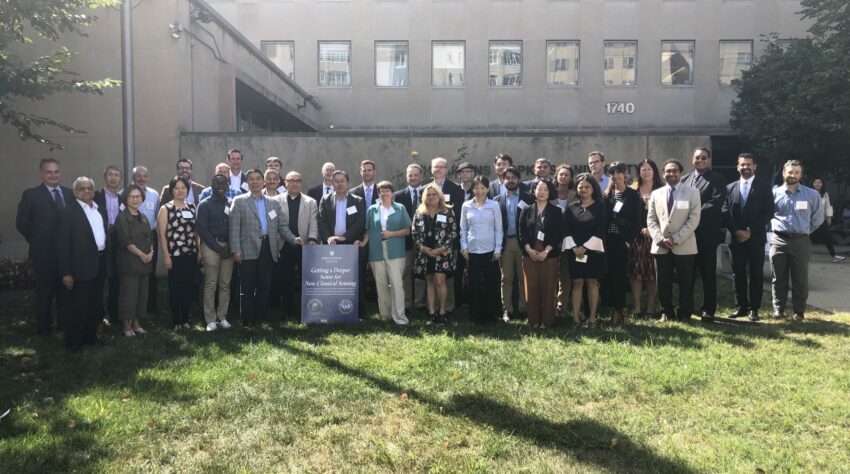In September 2019, a two-day workshop, entitled “Getting a Deeper Sense for Non-Classical Sensing,” was held in Washington D.C., that brought together a group of world-class scientific leaders from around the globe to review key findings and progress, as well as new technologies, techniques, and approaches, in the study of non-classical behavior/sensing and its effects on biological function. Participants consisted of researchers who have extensive background with non-classical sensors as well as those who are elucidate sensing biological processes or characteristics. Non-classical sensing can occur across multiple length scales and potentially involves collective behavior, which allows for deriving better sensing capabilities from emergent properties in the group rather than an individual entity. This nascent field of study may allow for potential breakthroughs in understanding and unprecedented control of biological function and other processes for new applications. The workshop identified gaps and particularly highlighted several potential application areas including understanding cancer and brain function.
The “Getting a Deeper Sense for Non-Classical Sensing” workshop was hosted by the Johns Hopkins University through grant support by the Air Force Office of Scientific Research (AFOSR) and the National Science (NSF) and in collaboration with the National Institutes of Health (NIH). Furthermore, the workshop was a follow-on to the “Non-Classical Behaviors in Biological Functions: Potential for Smart Sensing” workshop, held in Arlington, Va. in April 2018 through support from AFOSR.



